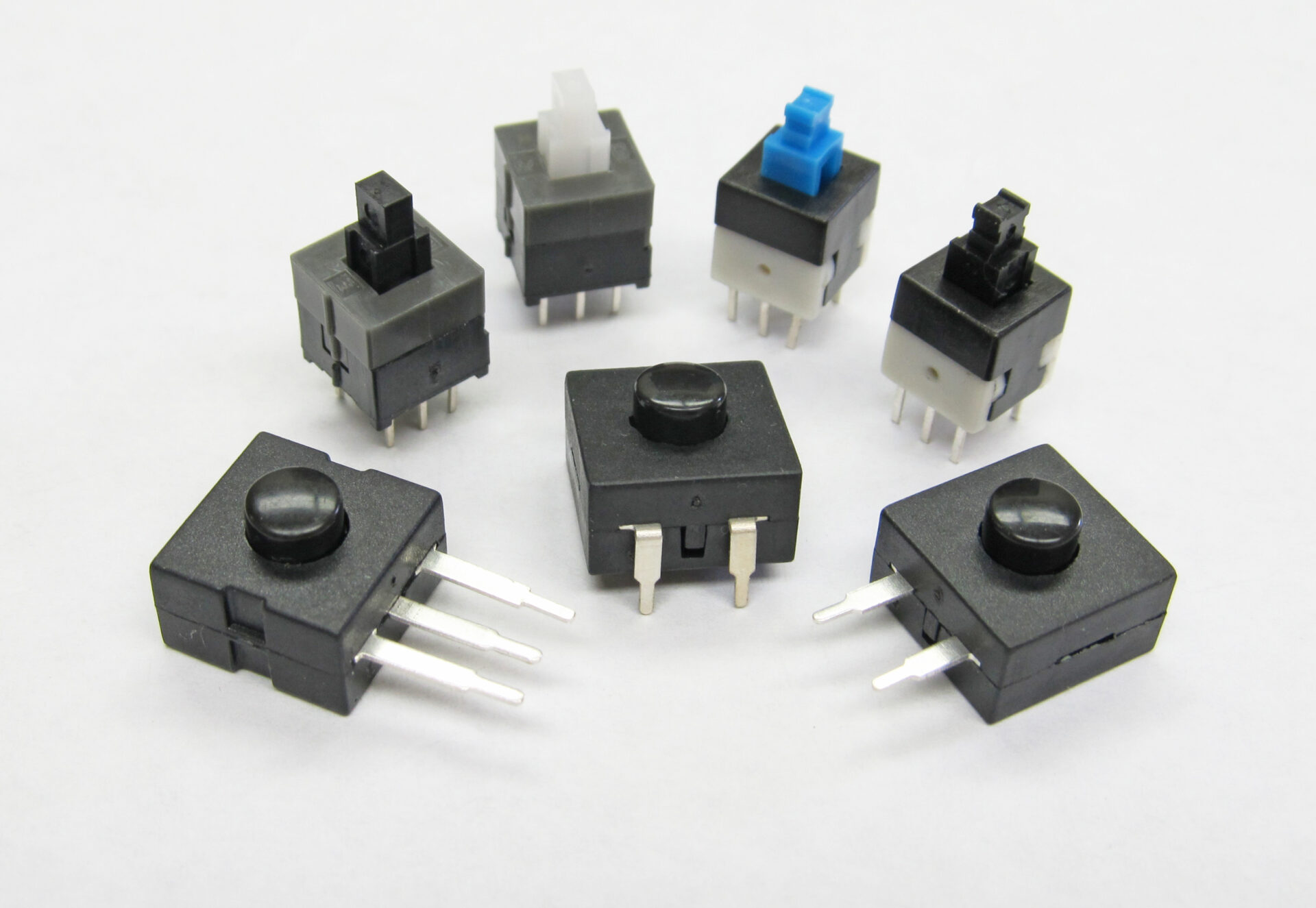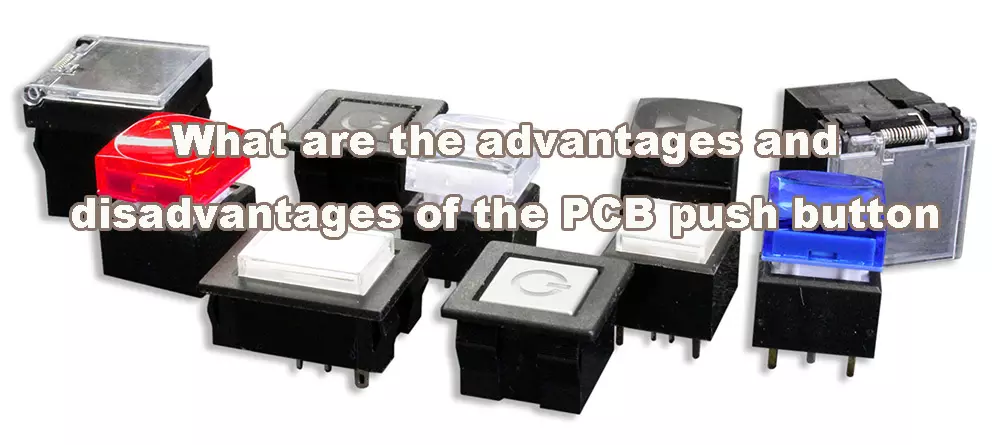Ah, let me tell ya ’bout these PCB mounted switches—they’re the kind of thing you don’t often see down on the farm, but they sure got their uses in the big city and fancy tech stuff. These little switches are specially made to stick right onto them printed circuit boards, ya know, them PCBs that make all the electronics work. You see, these switches don’t need no extra fussy wires or anything like that, they just clip right on, and that makes ’em mighty convenient for all sorts of gadgets and gizmos.
Now, them PCB mounted switches come in all shapes and sizes, but the most common ones are the momentary switches. These ones only work when ya press ’em, and as soon as you let go, they stop working. It’s like the switch is taking a nap the rest of the time. A lotta people use these in things like keyboards, control panels, or any kind of machine where ya need to push a button and make something happen real quick-like.

Why are they so good? Well, let me tell ya, they’re just perfect for when you got a lotta switches to control somethin’. Say you got a whole row of ’em for a keyboard, or maybe a control board for somethin’ fancy, these PCB mounted switches come with a special setup where they don’t take up too much room, but they still hold everything steady. That’s ’cause they have five pins instead of three like the old plate-mount ones. These extra two pins help keep the switch nice and sturdy, so it won’t wiggle around or get loose after some use.
Compared to them plate-mounted switches, the PCB ones got a better grip. The plate-mounted ones might just have three pins, and that’s fine if you got a strong metal plate underneath to hold things steady. But the PCB switches? They got them extra plastic pins, which gives ’em that little bit more strength. So, if you ever got a keyboard or a panel that might get banged up, these PCB mounted switches are the better choice.
- Benefits of PCB Mounted Switches:
- More stability thanks to the extra pins
- Don’t need a separate metal plate for support
- Perfect for small spaces where ya need lots of buttons
- Great for low-power gadgets
- Disadvantages:
- Can be a little more tricky to install for beginners
- May not be as strong as plate-mounted ones for heavy-duty use
But don’t go thinkin’ these PCB switches are only good for one thing. Oh no, they’re used in all sorts of devices, not just keyboards. Any piece of equipment that needs to turn on or off with a push, these little switches will do the job right. And since they’re nice and compact, they’re used in all them modern gadgets, like handheld devices and even some of them newfangled toys. If you need a switch that don’t take up much room, these PCB ones sure do the trick.
And if you’re wonderin’ about the cost of them switches, well, they ain’t too bad either. For example, a pack of 10 momentary tactile push button switches might cost you only around $5 to $10, dependin’ on where you buy ’em. And trust me, that’s a small price to pay for good, steady switches that won’t let you down. They work just fine for small gadgets or even your DIY electronics projects. Some folks even use ’em to make their own keypads or simple control boards. It’s real easy to hook ‘em up on a breadboard or a PCB.
If you’re thinkin’ of makin’ your own keyboard or control panel, then I reckon you’ll want to pay attention to these PCB switches. They’ll save you a whole lotta headache, and your setup will stay nice and stable, even if ya press them buttons a thousand times a day. And don’t forget, them extra pins on the switch give ya more stability, so it won’t wobble around or stop workin’ after some use.
In short, them PCB mounted switches might not be the prettiest thing in the world, but they sure do their job right. They’re reliable, stable, and don’t take up much space. Whether you’re makin’ your own gadgets or just fixin’ up a keyboard, these switches got your back. So next time you see one of them little switches on a circuit board, just remember, they ain’t just there to look fancy—they’re there to get things done!

Tags:[PCB mounted switches, Momentary switches, Keyboards, Electronic components, DIY electronics, Tactile push button switches, Low-power switches]